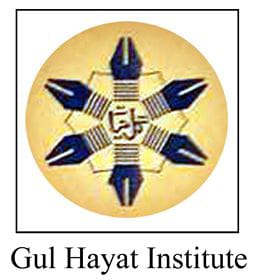-
PROCEEDING OF THE SIND LEGISLATIVE ASSEMBLY – 3RD MARCH 1943 14 Thus so long as Hindus remain as Hindus, there can be no possible basis of one nationality which according to the most authoritative sources implies a sense of kinship which is impossible and unpermissible under the Hindu philosophy. Renan, a great authority on the subject, says “Nationality is a subjective psychological feeling. It is a feeling of corporate sentiment of oneness which makes those that are charged with it feel that they are kith and kin. This feeling is a double edged feeling. It is at once a feeling of fellowship for those who are not one’s own kith and kin. It is a longing to belong to one’s own group and a longing not to belong to any other group. It has been sometimes said that what really matters to the masses is the problem of bread and that as soon as the economic problem is solved, the communal-we would maintain the national-differences will vanish. But such a hope is only self-delusion. The Honourable Dr. HEMANDAS R. WADHWANI: Sir, I rise to a point of order. My Honourable friend Mr. Ghulam Murtaza Shah is going into the merits of religion. I do not think he is relevant in this connection. He is attacking the Hindu religion pointing out the defects of the Hindu religion. THE HONOURABLE THE SPEAKER: He should avoid that. Mr. G. M. SAYED :How can I avoid it? I want to show how we differ. I must show the differences between the two societies. The Ideologies of each other are different. I must quote how they are different. I am attacking no religion. I am not saying anything against them. I do not think anybody on earth will deny what I am saying. I am not doing injustice to other religions. I have great regard for other religions. I am only showing different ideologies. The Honourable DR. HEMANDAS R. WADHWANI: He has been going into the merits of religions. THE HONOURABLE THE SPEAKER: Honourable Member should not compare the religions. He can compare social customs and economic theories. Mr. G. M. SAYED: Sir, I was explaining the economic position and pointing out that Hindu philosophy has no room for labour; it is looked down upon by it. Money is worshipped as a deity and gambling including speculation, the bane of modern economy and usury which enable one to lead a luxurious life without having to labour for it, are not only permitted, but form part of Hindu ritual. Islam on the other hand not only acknowledges but actually sanctifies manual labour, forbids easy money-making such as usury. The Honourable Dr. HEMANDAS R. WADHWANI: What are Pathans? Mr. G. M. SAYED: They are not acting according to Islamic conceptions. Islam encourages division and fragmentation of property aiming at the ultimate destruction of all artificial class distinctions based on accidental differences of colour and race or wealth and property. Most of the greatest saints and scholars of Islam have been mechanics and tradesmen of all sorts-washermen, carpenters, cotton thrashers, weavers, yet they are all amongst the most respected scholars, honourable men in Islam. I may as well quote: (Here read some Arabic couplet). Labourer is a friend of God. Labour is the most accepted thing by God. That is how I am pointing out different ideologies. PROCEEDING OF THE SIND LEGISLATIVE ASSEMBLY – 3RD MARCH 1943 15 The Honourable Dr. HEMANDAS R. WADHWANI: Outside Sind most of the labour is Hindu (Laughter). Mr. G. M. SAYED: Thus if the ultimate object in the freedom of a democratic unit is the free, un-restricted growth of a nation on its own individualistic lines based on its culture, philosophy and traditions, not to speak of other accidental factors such as climatic, geographical, linguistic and racial characteristics, then Muslims and Hindus can never expect to attain that common growth as the growth of one precludes that of the other, the very basis of such growth being opposed one to the other. It is idle to expect that when the hero of one community is the tyrant of the other, when a historic victory of one is the shameful defeat of the other that in a United India, where the Hindus will by the strength of their numbers always command the lion’s share in the Government of the country, Muslims will have any the slightest chance of attainment of their ideals. I must further point out that democracy means rule of people. But these people must be homogeneous and not heterogeneous. There cannot be any Government unless it has got some common ideals before it, which are acceptable to all the people of the land. Now let us see whether a common ideal in a United India can ever be possible. It is quite clear that their ideals being different, Hindus and Muslims cannot run smoothly in the same direction with the result that there will not be democracy but there will be a rule of tyrant majority. Today we blame Hitler and other tyrant states for forcing their wills upon others and coerce the people to act against their free wills. What would be the differences between them and the people of India if unity was forced upon them? If 300 million people force 100 million people to be subordinate to them and follow the ideals of the 300 million people, quite contrary to the wishes and sentiments of the minority, what will be the result of such rule? The two major communities are rivals for political power and rivalry between them is bound to continue so long as one is not completely absorbed by the other or they are not given separate national states. No power in the world can establish the necessary understanding between them, at the same time keeping them as Hindus and Muslims with one national unit. Their traditions have been built on each other’s cost. The history of the last one thousand years is dotted with incidents which do not signify the same thing to them both. What one has recorded as its brilliant success, the other has registered as a wrong perpetrated against it. Some people again argue that Muslim nationalists will not be self-sufficient economically and financially. That way no state in the world is entirely self dependent in every aspect of life and rich enough to satisfy its entire requirements. Whatever its economical position, no nation will be prepared to lose its independence and liberty for the sake of money and other luxuries of life. Can a bird prefer all sorts of food in a cage to the free rambling life in the woods where it often does not get sufficient food ? Will Afghanistan lose its independence for the sake of the rich grains and other amenities of life in India ? It is therefore idle to raise the bogy of economical insufficiency in respect of Pakistan States. I hope better senses will prevail and our Hindu friends who claim to be so anxious about the independence of India will understand and realise that there is no other solution for the salvation of the country than the one embodied in the Lahore Resolution of the All-India Muslim League commonly known as Pakistan Resolution, if the problem of India is ever satisfactorily to be solved. PROCEEDING OF THE SIND LEGISLATIVE ASSEMBLY – 3RD MARCH 1943 16 Sir, I cannot do better than wind up my speech by referring to a happy coincidence. Today when I move in this Honourable House this Pakistan resolution, that great Hindu leader Mr. Gandhi who has tried in the past for Hindu Muslim Unity will break his fast. It is our earnest hope that Mr. Gandhi will now more than ever become convinced that any attainment at artificial unity is foredoomed to failure. Independence of India, freedom from foreign domination, riddance of imperialistic rule can only be achieved when the Hindu Muslim question has been settled in an honourable manner to the satisfaction of the great Muslim Nation by conceding its Pakistan demand. It is therefore that I venture to hope that his inner light will reveal to him the imperative need to concede to the Muslim Nation the right of self-determination and thereby he will spare us all the tragedy that will inevitably happen leading to disastrous consequences if this fair demand of the Muslims is opposed and any constitution that does not confer this right upon Muslims is thrust upon us against our wishes. SHAIKH ABDUL MAJID: Sir, I wish to move two amendments to the resolution moved by my friend Mr. G.M. Sayed. I do not know whether you will allow me to move these amendments at the same time, or after you have dealt with one. THE HONOURABLE THE SPEAKER: Which are the amendments? SHAIKH ABDUL MAJID:Sir, I move my first amendment that in line 3 from the bottom, after the word “own” the words “with safeguards for minorities” should be added. My second amendment is this, viz: “ Drop the words “Civil war with grave’ in the last line, and substitute the word “disastrous”. THE HONOURABLE THE SPEAKER: The amendment moved is in line 3 from the bottom, after the word “own” the words “with safeguards for minorities” should be added. And in the last line the words “civil war with grave” should be substituted by the word “disastrous”. Mr. G. M. SAYED: I accept the amendment. THE HONOURABLE THE SPEAKER: Is the Honourable Member going to speak? I shall permit him if he wants to. SHAIKH ABDUL MAJID: (In Sindhi) Sir, I support the resolution of my Honourable friend, as amended by me. I am sorry that my Honourable Hindu friends have thought it fit to walk out of this Honourable House. I would have been more pleased if they had been broad minded enough to give us at least a patient hearing. If the proposals were not acceptable to them, they could have remained neutral but there was no relevant reason for their leaving the House. It is since long that Indian National Congress and All India Muslim League and other organisations have expressed their ideas and views on the future constitution of India. The ideology behind this resolution has been placed before the country by the All India Muslim League. It was necessary to think a little over it and decide whether the resolution should be supported by the House. There was nothing new in it, which was Greek and Latin to the Honourable Hindu Members and that it so hit upon their hearts that they were compelled to leave this House or even the province of Sind. There was not a single point in it on which it was necessary for them to show displeasure. The question of future of India is a constitutional question. On such questions some of Honourable Members at times are over-powered by communalism. It pertains to a constitutional issue and we have to judge with patience, whether it would be possible to have federated union in India. I think it PROCEEDING OF THE SIND LEGISLATIVE ASSEMBLY – 3RD MARCH 1943 17 cannot be possible unless there are independent units in India. If I may state in English, “Federation of Units, presupposes existence of independent Units in the country.” The main aim of this resolution is that the Muslims of India want reconstruction of those provinces and areas in which Muslims are in majority. Similar case should be of the other provinces of India in which Hindus are in majority. In this resolution there is nothing mentioned about those provinces, in which Hindus are in majority yet they are included in it. It will be applicable to the provinces in which Muslims are in majority as well as to those provinces in which Hindus are in majority. It is neither injustice to Hindus nor Muslims. It is a constitutional matter which is being decided for ever. These major communities then will have brotherly terms and connections either on compromise foundation or on the basis of treaty. This resolution does not aim at war but it is a method to check war. It has been said by Honourable friend Mr. G. M. Sayed that there should be self-determination and independence in the provinces on the lines of Soviet Units in Russia. The units have got the right of secession and there is such a clause permitting the right of units in the Russian constitution. Having regard to these points, it can be said that this resolution was only a constitutional question, and there was no real cause for my Honourable Hindu friends to leave the House. It is not possible for Congress to solve the problem of India. Every country has its own problems. The problem of India can be solved with broad mind and liberal views; it is necessary for us to understand each other’s view points and to arrive at settlement. My Honourable friend has referred to the Lahore Resolution, passed by All-India Muslim League, in which it was mentioned that safeguards should be guaranteed to minorities. The safeguards should relate to culture, religion, social customs and language. Therefore I thought it necessary to move this amendment. It is relevant to the Lahore Resolution, which is known as Pakistan Resolution. It is no exaggeration to say that my Honourable friend Mr. G. M. Sayed has rendered service to the whole of India by moving this resolution. From the time the Sind Assembly has come into existence, this is the first time that the opinion of the Muslims of Sind, in real sense, is being conveyed. If the principle of this resolution is accepted it can bring about compromise between Muslim League and Congress. Sir Strafford Cripps’ proposals, which were not accepted by Congress, contained the same principle. Sir Strafford Cripps’ proposal had four parts. One part was that after the war, there would be independent units. Those units may retain their sovereignty or may join an All India Union. The Congress Working Committee too passed a resolution declaring that no unit could be forced to accede in the Union if they preferred to stand out. Honourable Mr. G. M. Sayed’s resolution is similar to the proposal of Sir Strafford Cripps. Independent states should be formed, where Muslims are in majority. There is a clamour all over the world for New Order. Why not give some serious thought to the problem of a New Order for India? The principle of this resolution can help both the communities to come to terms. All-India Muslim League’s resolution ushers in the possibility of such an understanding. It is no doubt that we do not wish to remain under any Central Government. In the Central Government there will be a permanent majority of one community. Though it is not the intention of Honourable the mover, yet it is possible that Congress and Muslim League may sit at one round table and while considering the internal and external affairs of the provinces and finances of India, can evolve an acceptable constitution. There are some problems affecting equally more than one province. For example Indus river dispute between Punjab and Sind Governments. An arbitrator PROCEEDING OF THE SIND LEGISLATIVE ASSEMBLY – 3RD MARCH 1943 18 was appointed. After the matter was decided both the Governments have appealed to H. M. the King Emperor. It would have been more correct if both these Pakistan Provinces had appealed to the All-India Muslim League. We have to evolve a common machinery for the settlement of the inter-provincial disputes. The province of Sind has got a sea coast. We may require a Navy to defend the cost Line. That Navy would not guard Sind Province only but also other provinces, such as Punjab and N.W.F. Province. Many questions of that type would arise. We would be required to maintain Naval Force, Air Force and land Force. It is a matter for consideration why the expenditure should be borne by Sind alone. I do not deem it impossible that atter the theoretical differences have ended, there might arise the necessity of having a central machinery for the settlement of inter-states disputes. For Sind it is more beneficial to agree to the proposal of Sir Strafford Cripps, which has not yet been withdrawn by the British Government. Every province possesses its own natural gifts and Sind has got Karachi as a natural gift. The revenue derived from customs only is eight to nine crores. Besides there are other incomes obtained from Income tax, Railway and Postal receipts which go to Central Government but we do not get any share from that revenue. At present it would be seen that our Government cannot introduce compulsory education for our children and we have no funds to make necessary arrangements for medical relief. The reason is its poor financial position, when major portion of the income is taken away by the Central Government. There is no need for us to maintain this white elephant of the Central Government from our revenues. The Honourable Dr. HEMANDAS R.WADHWANI: Sir, while opposing the resolution of the Honourable Member Mr. G. M. Sayed, before I give my reasons for opposing the same, I congratulate the Honourable Member Shaikh Abdul Majid on arguing about the resolution on general and political grounds only. I am glad to note that he did not touch religion as did my Honourable friend Sayed Ghulam Martaza Shah. Of course every body has got his own point of view on general and political matters. There is always a difference of opinion so far as that aspect of the matter is concerned and I have no objection to that in the least. What I am sorry about is the attitude of the Honourable Member Mr. Sayed who tried to show the difference in the religions of Hindus and Muslims. He tried to touch all the bad points of the Hindu religion. They may be bad according to him and good according to others. There is always difference of opinion in that also. But I do not wish to pay him in the same coin in order to show the good points or the bad points of his religion for which I have got the greatest regard. I am a believer in the brotherhood of religions. God is one and I consider all the religions of the world as different roads leading to God. That is my own point of view. Muslim religion according to the Hindus may have its good or bad points. But according to me the aim of all the religions is the same. So I do not wish to touch the merits or the demerits of Hindu and Muslim religions. What I would therefore request the Honourable Member Mr. Sayed is that he should always touch such questions on general and political grounds only as my Honourable friend Shaikh Abdul Majid has done. Certainly we have no objection to that. As they are members of the Muslim League, surely they have got every right to follow Muslim League mandate. Similarly we are members of Hindu Mahasabha and we have every right to carry out our own policy and programme. Therefore they should not bring in the point of religion. That is what I strongly object to. I may repeat once again that I have got the greatest regard for Muslim religion and as a matter of fact all the religions of the world over. With these few remarks I oppose the resolution. PROCEEDING OF THE SIND LEGISLATIVE ASSEMBLY – 3RD MARCH 1943 19 Mr. G. M. SAYED: Sir, I rise on a point of personal explanation. I have never pointed out the bad points of Hindu religion or the good points of Muslim religion. I have only shown the differences. I have got great respect for Hindu religion. My religion teaches me tolerance for all the religions of the world. That is the commandment of the Holy Prophet. We should not belittle any other religion. So it was far from my intention to say anything against Hindu religion. I only wanted to show the different conceptions of both idealogies and I assure my Honourable friend Dr. Hemandas that it was not with an object of showing that Hindu conception was bad and mine was good. It was merely to show how diametrically they were opposed to each other. That was my point. Mr. MUHAMMAD USMAN SOOMRO: (In Sindhi.) Sir, the resolution introduced by Honourable Member Mr. G. M. Sayed created misunderstanding in my mind but it has been removed by the speech of Honourable Shaikh Abdul Majid. We have read the proposals of Sir Strafford Cripps. They were worthy proposals. According to them, every Province would have enjoyed its independence while joining union or remaining as a unit. It was ill-luck that the proposals were not accepted by Hindus, Muslims and Congress. Sir Strafford Cripps went back without any agreement. There is no question of Hindu or Muslim, every body would be eager to see the independence of Sind. That independence does not mean that our Sind Province should be combined with Baluchistan, Punjab or Pakistan or with other provinces. By doing so Sind would be put in dark, because majority would be theirs; similarly it was said by Honourable Shaikh Abdul Majid in his speech. The population of Punjab and Baluchistan is greater and if Sind is combined with them, it would suffer. It may take place that some deserts and frontiers might be put along with Sind, and be an unnecessary burden on it. The Sind province has got its own sufficient income and therefore it would be beneficial if it remains separate. Considering these points it can be said that the proposals of Sir Strafford Cripps are up to the mark and it would be better if they are accepted by Sind. Now the question remains, whether the provinces should join together. This should be decided at the time when a question pertaining to all the provinces arises, for example, the dispute of Indus Water. For such matters and quarrels a tribunal would be appointed. By this kind of independence Muslims as well as Hindus would be gainers. It would be the duty of majority to protect the rights of minority. If separated, every Province would feel its responsibility to meet the expenditure within its income. With these words I support the resolution. The Honourable RAI SAHIB GOKALDAS MEWALDAS: Sir, I am glad to note that the Honourable Member. Mr. G. M. Sayed has removed the impression by assuring the Hindu community that he had no intention whatsoever to comment on Hindu religion. I would like to make a few remarks so far as the Pakistan system is concerned or whatever the Honourable Member Mr. G.M. Sayed himself has said. He said that there is a rule of the tyrant because of the majority community. So far as I can understand, he refers to the Hindu community. What is the case in Sind? The Hindus are not in the majority, but the Mussalmans are. Similarly in some other Provinces the Mussalmans are in the majority, and they want a separate province to be ruled or constituted by them. I think it is not a different way that he has suggested why Pakistan is needed. He has repeated the same story which, in his opinion, is being repeated in India. I do not know whether in other Provinces any resolution in the Legislative Assemblies or in the Central Assembly or the Council of State has been moved or carried. It only shows that this resolution in this Assembly is being moved on the assumption that this House has got the majority of the Mussalmans, and that they are sure that such a resolution will be carried. We personally do not mind if by their majority they PROCEEDING OF THE SIND LEGISLATIVE ASSEMBLY – 3RD MARCH 1943 20 carry the resolution. But I must remind my Honourable friend that he is accusing the Hindus that they will rule the other provinces in India because they are in the majority. He wants the same thing to be repeated in our Province. The second point is this. The war is at the doors of India. The question therefore is whether it would be advisable for India to be divided into States. If it is done, they may not be able to defend the country from the enemy attack at this time. If the states are divided, I do not think it would be possible to safeguard the interests of India. So far as the Indian demand goes, it is for Swaraj or independence for India. It is not for any individual province; it is not for any individual district; it is not for any individual taluka. From what the Honouable Member Mr. G.M. Sayed said, if that should be the principle accepted by the Muslim League on the assumption that they consider themselves a minority community in India, then they must realise that they are a majority community in Sind. Similarly in each district or in each taluka or in each town, the same thing might be repeated that they may be independent. I think it will be absolutely wrong in policy that the Province should be divided into independent districts, or independent taluka headquarters or independent divisions. It should remain as a whole, and the province should be attached as a whole to India. Similarly, there is the question of Hindu-Muslim unity. I can understand that if there are some differences of opinion on the independence of India, they can certainly settle their disputes by all means. But it is absolutely difficult to imagine, Sir, that, if our province is separated, they would naturally want that it should be attached to the Punjab, and the Punjab to the Frontier, and the Frontier with Turkey or any other place, and so on. I do not know what would be the significance or consequence of this in the long run. If it is the idea of our Muslim League brothers that they must have separate Raj, separate division to rule, I can understand that significance. How is that possible to expect? Similarly I might also inform my Honourable friend Mr. G.M. Sayed what is the case in America. Negroes are there. They have got the same rights as others. Are they going to be separated on this account? If we look to the past history of Ireland, what was it? Ireland was divided……… THE HONOURABLE THE SPEAKER: If they could help it. The Honourable RAI SAHIB GOKALDAS MEWALDAS: Similarly Austria was attached with Germany some time back, and when it was separated, you could understand there was no independence. It is separate from Germany altogether. I quote these for the sake of examples. If we are separated from one province to another, from province to district, and so on I do not think it will be a good idea or suggestion for people to separate and lose their villages or towns or provinces. Nobody would be able to defend themselves. So far as the Hindus are concerned, they have got their religious pilgrimages everywhere in India. Similarly the Mussalmans have got their pilgrimages everywhere in India. If India is divided into parts, provinces or districts, how would it be possible to maintain that unity? With these words, I would like to oppose the resolution. Mrs. J. G. ALLANA: (In Sindhi) Sir, on behalf of the Muslim women of this province, I support this resolution. I assure the Honourable House that we are true to Muslim League and I desire that the Muslims of India may get Pakistan as soon as possible. PROCEEDING OF THE SIND LEGISLATIVE ASSEMBLY – 3RD MARCH 1943 21 The Honourable KHAN BAHADUR M.A. KHUHRO:I have nothing much to add on a resolution of this kind. The Honourable the Mover of the Resolution Mr. G.M. Sayed has made the position entirely clear in a written speech he has made in this House, and he has fully explained the ideology of the Muslim League as adumbrated in the Resolution of the All-India Muslim League passed in Lahore in March 1940. Now, there is a slight misunderstanding created by what Honourable Member Shaikh Sahib said, namely that as far as he was able to understand, the proposals of the British Government by Sir Strafford Cripps also accepted the principle of independence of individual provinces, what they called political units. Now, the difference between those proposals and the Muslim League ideology was, as was said by Mr. Jinnah in his presidential address at the Lahore session, last year, that the Muslim League demanded self-determination of Muslim nations as such-namely the Muslim community of the entire India. Though it may be said that the proposals of Sir Strafford Cripps go a great deal to meet the wishes of the Muslim League, they do not go cent per cent. They may be about 50 or 60 per cent. What we ask is that there should be acknowledged on the part of the British Government the right of complete self-determination of the Muslim nation. This has been sufficiently argued by the Honourable mover of the resolution. Secondly, Honourable Member Shaikh Sahib showed, that there are sufficient grounds that the Muslims are a nation because they are politically, socially, religiously and for various other reasons that have been described by him independent and they have every just claim to self-determination. I think, Sir, it would be difficult to say if Sind at this stage could stand by itself. Now there is the Western Zone comprising of Baluchistan, Frontier Province &c. Similarly there is the Eastern Zone comprising part of Assam, part of Bengal &c. Those zones compared to India as a whole are much less than the entire area or the entire population of the Indian sub-continent. The Muslim League does not say that the Hindus should be deprived of independence. The Muslim League stands for independence. The League says: Let Hindus have independence in their own areas and the Muslims where they are in majority should have similar independence. Therefore I do not understand the argument of my Honourable friend Rai Sahib Gokaldas. Sind and other provinces under the provincial autonomy are already independent. The Honourable Minister knows it. Only in certain respects they are dependent on the Central Government, But we want complete independence of the Central Government, complete freedom under the new dispensation of things. The point that because Sind will be a separate independent province, therefore each taluka, each district, each village will claim to be independent is ridiculous. Punjab is a separate province, so also the North West Frontier & c. Therefore the principle of independence is acknowledged that they are separate units and these provinces can maintain themselves. The only question remains about the Military, Air Force and Navy. These are Central subjects. These things can be discussed at a Round Table Conference where representatives of the Congress, the Mahasabha and all prominent bodies will be present and they will come to an amicable understanding. There is no serious objection to the resolution as such and I hope the House will accept it unanimously or by a majority. PROCEEDING OF THE SIND LEGISLATIVE ASSEMBLY – 3RD MARCH 1943 22 The Honourable SIR GHULAM HUSSAIN HIDAYATULLAH:Sir, I would suggest that a copy of the proceedings of this debate may be forwarded to the proper authorities. I have nothing more to say. Mr. G. M. SAYED: I wish to reply to one or two points raised by Honourable Rai Sahib Gokaldas Mewaldas. Let Hindus have 3/4th share and Muslims 1/4th . We do not grudge that they should have their share. He said that if there was a proposal for independence of Sind only, then it was a different matter. But he has a fear that to-morrow we might even join with Turkey. Why should he say so? It will depend upon both of us. It they are able to influence us and if we are able to remain aloof, why should we join Turkey? Why has Turkey not joined Afghanistan or Persia? They are independent Muslim countries free to federate but still they have not joined. History has proved it. I cannot promise what will be decided in the future. It is left to the wishes of the people of the Province. Another point is of defence. How is Afghanistan defending itself; how is Persia defending itself; how is Iraq defending itself? Our province is richer than Afghanistan; it has got much more population than several of these small states in the world. Why can we not defend ourselves, when other smaller nations can defend themselves? The Honourable Rai Sahib GOKALDAS MEWALDAS:He does not realise that they are ruling nations. Mr. M. H. GAZDAR:We want to be a ruling nation. Mr. G. M. SAYED: Then come to the geographical units. We have Canada and United States of America. They are independent nations and they do not unite. Take the instance of Mexico. It is an independent nation and does not want to unite. Each and every nation wants independence and no nation wants to be dependent on the other. Therefore that argument does not stand. With these words I resume my seat. THE HONOURABLE THE SPEAKER: Now I put the resolution. (Question put and agreed to.) The Honourable Dr. HEMANDAS R. WADHWANI: Sir, I want a division. THE HONOURABLE THE SPEAKER:I allow the division. Tellers will be:- Mr. Fraser, Mir Ghulam Ali, Mr. Muhammad Usman Soomro, Seth Lolumal. Mr. Muhammad Usman Soomro to pair with Mr. Fraser for the “Ayes” and Seth Lolumal to pair with Mir Ghulam Ali for the “Noes”. PROCEEDING OF THE SIND LEGISLATIVE ASSEMBLY – 3RD MARCH 1943 23 RESULT OF DIVISION ON PAKISTAN RESOLUTION. AYES.NOES.01. SHAIKH ABDUL MAJID 01. THE HONOURABLE RAI SAHIB GOKALDAS MEWALDAS02. KHAN BAHADUR ALLAH BAKHSH K. GABOL 02. THE HONOURABLE DR. HEMANDAS R. WADHWAN03. KHAN BAHADUR HAJI AMIR ALI LAHORI. 03. MR. LOLUMAL R. MOTWANI.04. MR. ARBAB TOGACHI.05. MIR BANDEHALI KHAN TALPUR.06. MIR GHULAM ALI KHAN TALPUR.07. HONOURABLE SIR GHULAM HUSSAIN HIDAYATULLAH.08. KHAN BAHADUR GHULAM MUHAMMAD ISRAN.09. SAYED GHULAM MURTAZA SHAH.10. KHAN BAHADUR SAYED GHULAM NABI SHAH. 11. HONOURABLE PIR ILLAHI BAKHSH NAWAZ ALI. 12. NAWAB HAJI JAM JAN MUHAMMAD. 13. MRS. JENUBAI G. ALLANA. 14. S.B. SARDAR KAISER KHAN. 15. SYED MUHAMMAD ALI SHAH 16. HONOURABLE KHAN BAHADUR M. A. KHUHRO. 17. HONOURABLE HAJI MUHAMMAD HASHIM GAZDAR. 18. MR. MUHAMMAD USMAN SOOMRO. 19. MR. MUHAMMAD YUSIF CHANDIO. 20. SAYED NUR MUHAMMAD SHAH. 21. RAIS RASUL BAKHSH KHAN UNER. 22. MR. ALI GOHAR KHAN MEHAR. 23. MR. SHAMSUDDIN KHAN BARAKZAI 24. KHAN SAHIB SOHRAB KHAN SARKI. There are 24 for the Ayes, and 3 for the Noes. So the resolution is carried
Pakistan Resolution By Sindh Assembly
Share this article
Subscribe
By pressing the Subscribe button, you confirm that you have read our Privacy Policy.
Latest News
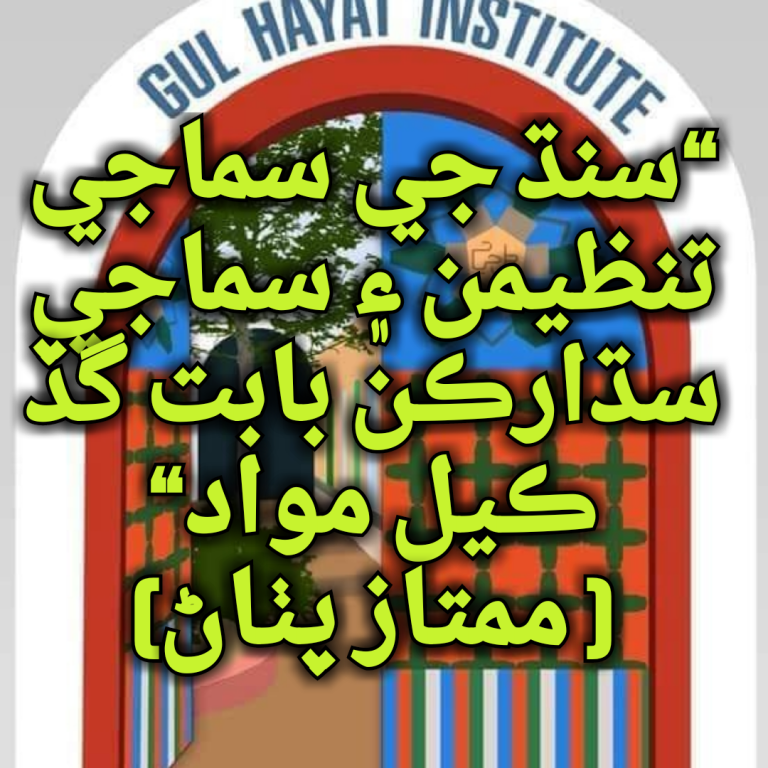
سنڌ جي سماجي تنظيمن ۽ سماجي سڌارڪن بابت گڏ ڪيل مواد
April 18, 2025
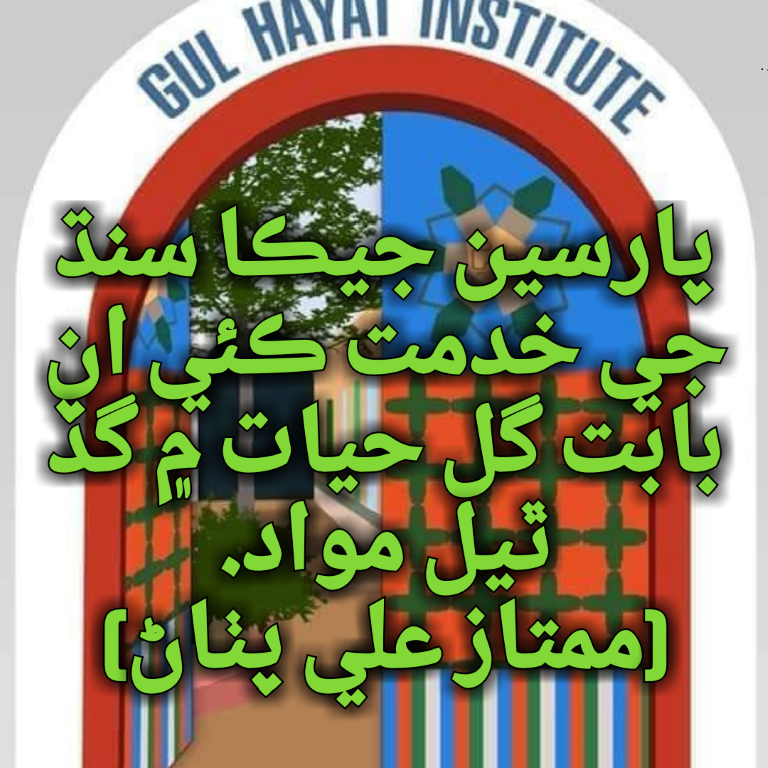
پارسين جيڪا سنڌ جي خدمت ڪئي ان بابت گل حيات ۾ گڏ ٿيل مواد.
April 18, 2025
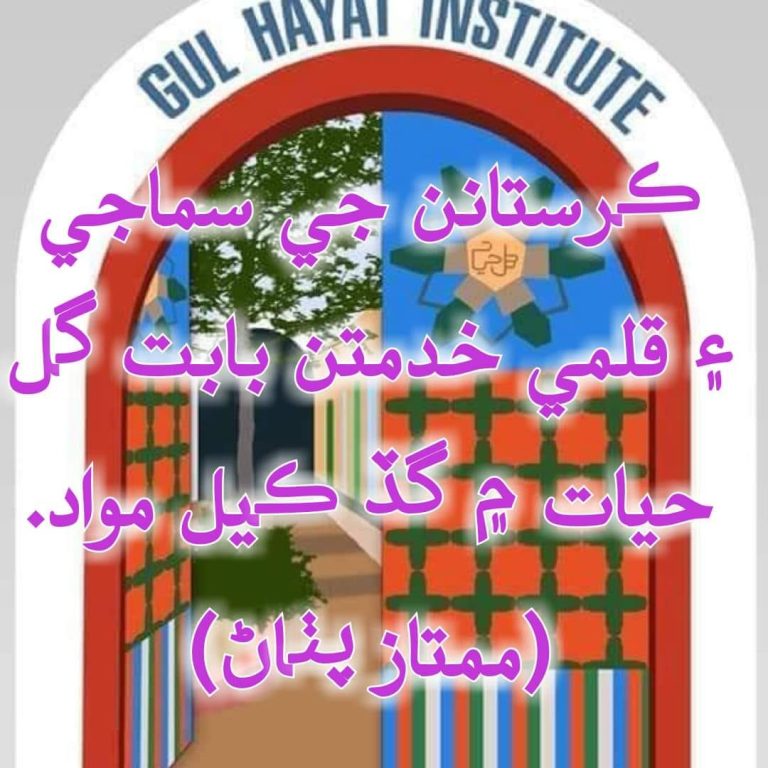
“ڪرستانن جي سماجي ۽ قلمي خدمتن بابت گل حيات ۾ گڏ ڪيل مواد.“
April 18, 2025
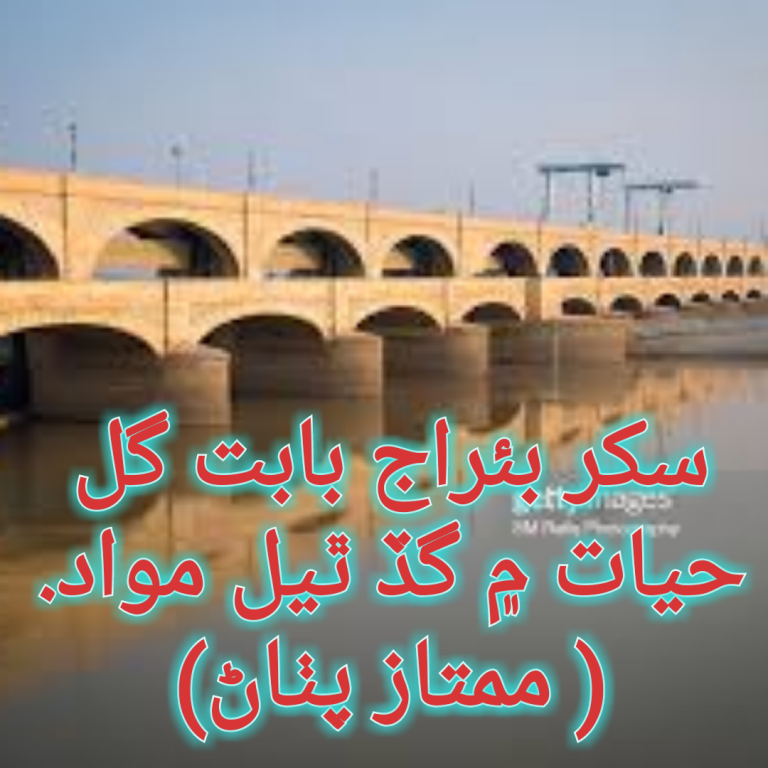
سکر بئراج بابت گل حيات ۾ گڏ ٿيل مواد.
April 18, 2025
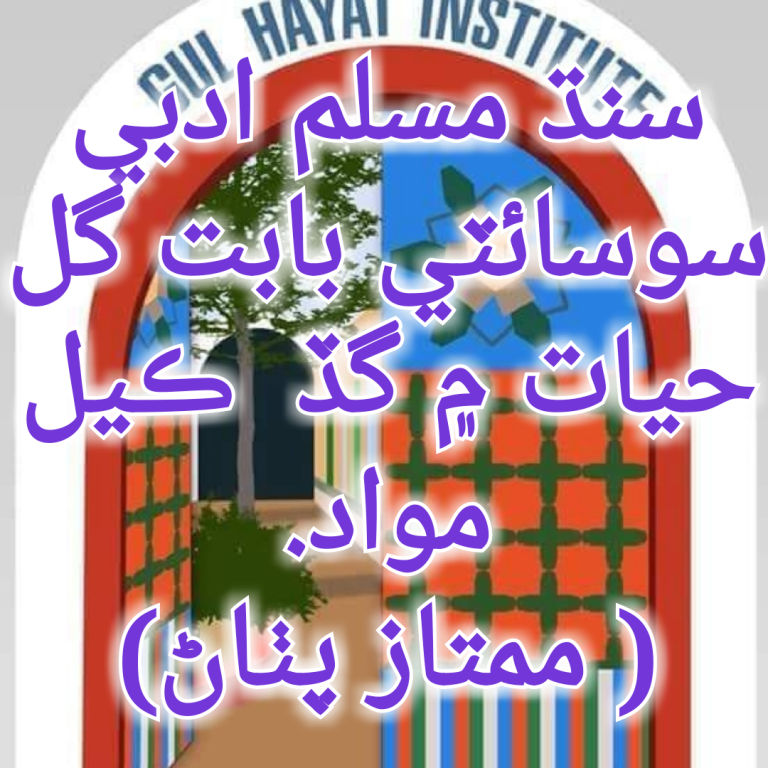
سنڌ مسلم ادبي سوسائٽي بابت گل حيات ۾ گڏ ڪيل مواد.
April 18, 2025
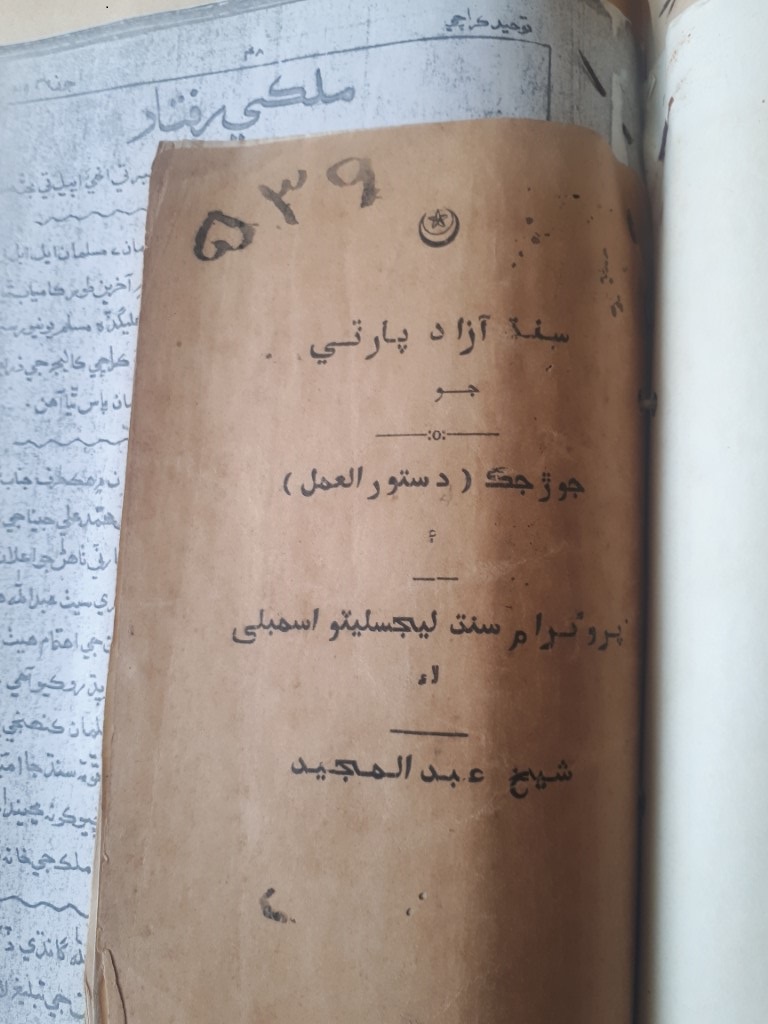
سنڌ آزاد پارٽيءَ بابت گل حيات ۾ گڏ ٿيل مواد.
April 18, 2025
Featured Categories
More News
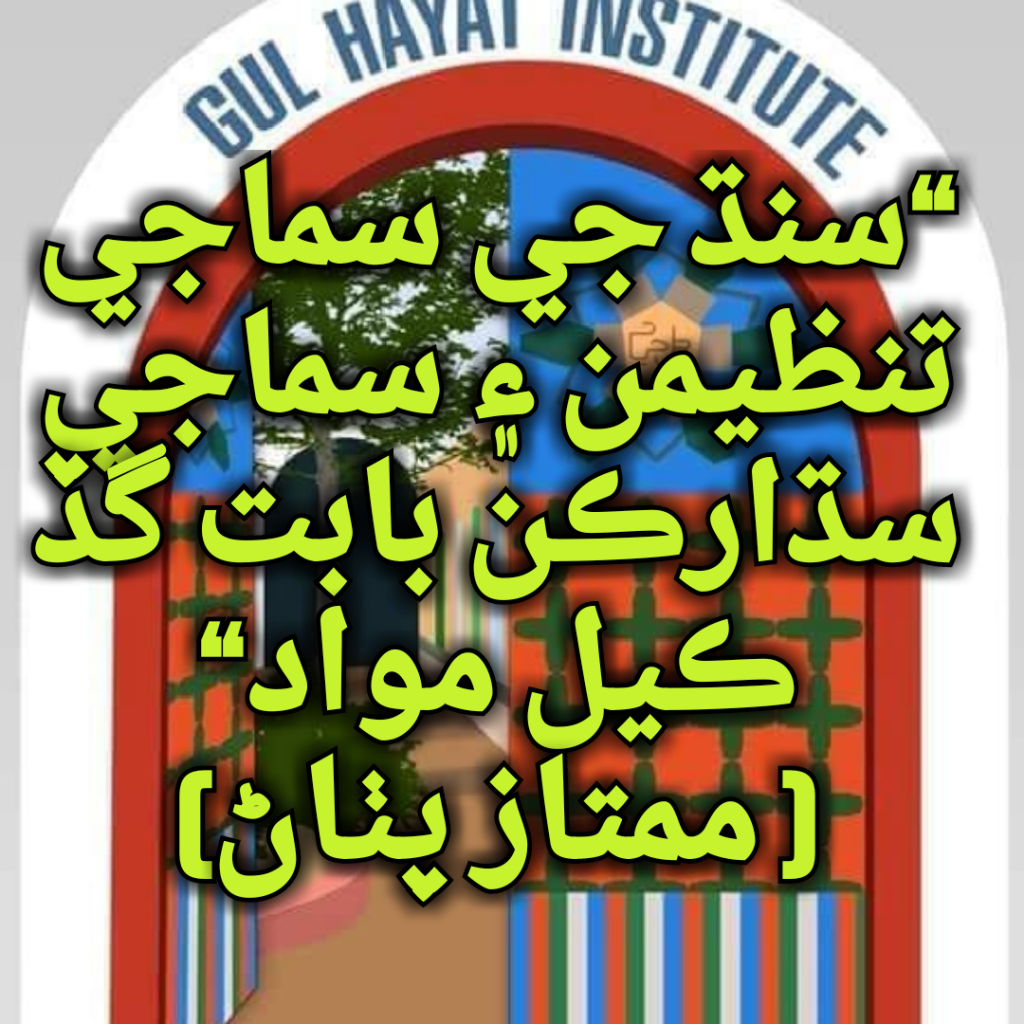
سنڌ جي سماجي تنظيمن ۽ سماجي سڌارڪن بابت گڏ ڪيل مواد
April 18, 2025

پارسين جيڪا سنڌ جي خدمت ڪئي ان بابت گل حيات ۾ گڏ ٿيل مواد.
April 18, 2025
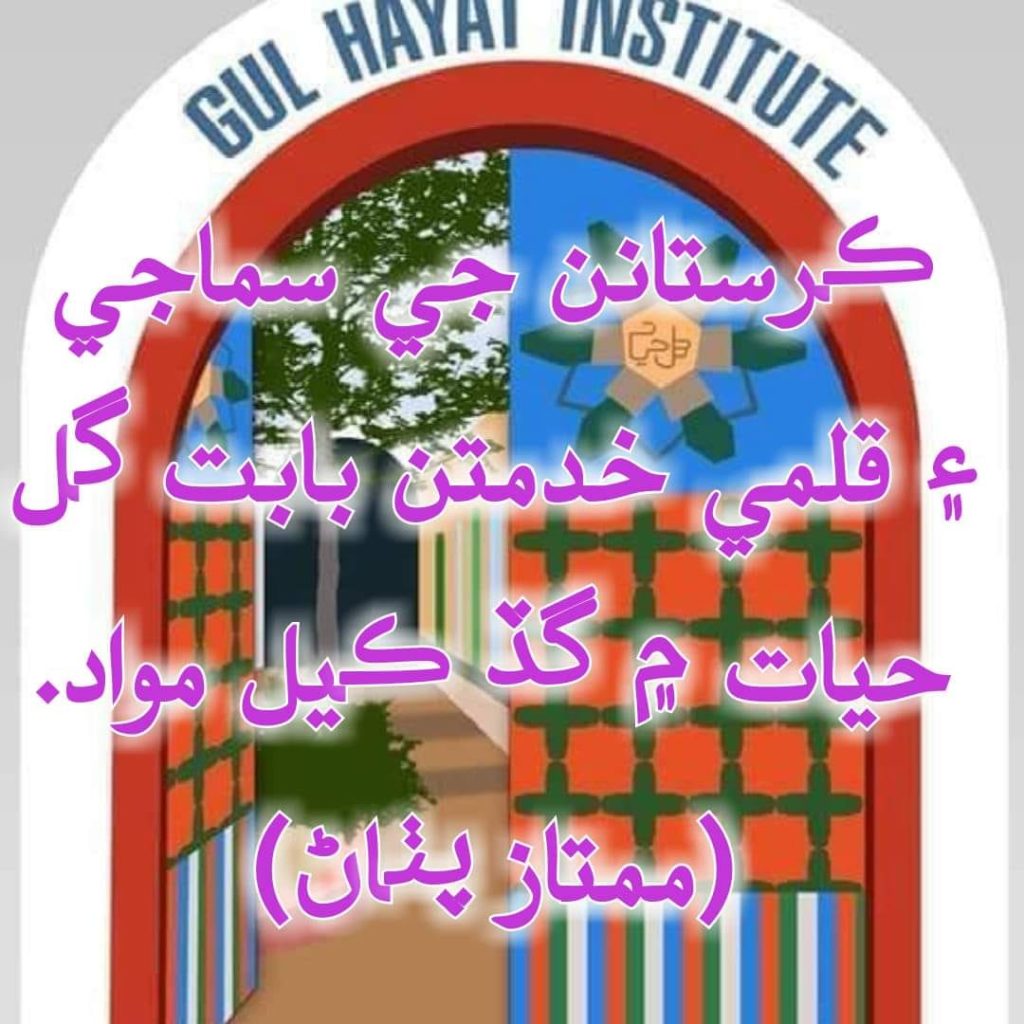
“ڪرستانن جي سماجي ۽ قلمي خدمتن بابت گل حيات ۾ گڏ ڪيل مواد.“
April 18, 2025

سکر بئراج بابت گل حيات ۾ گڏ ٿيل مواد.
April 18, 2025
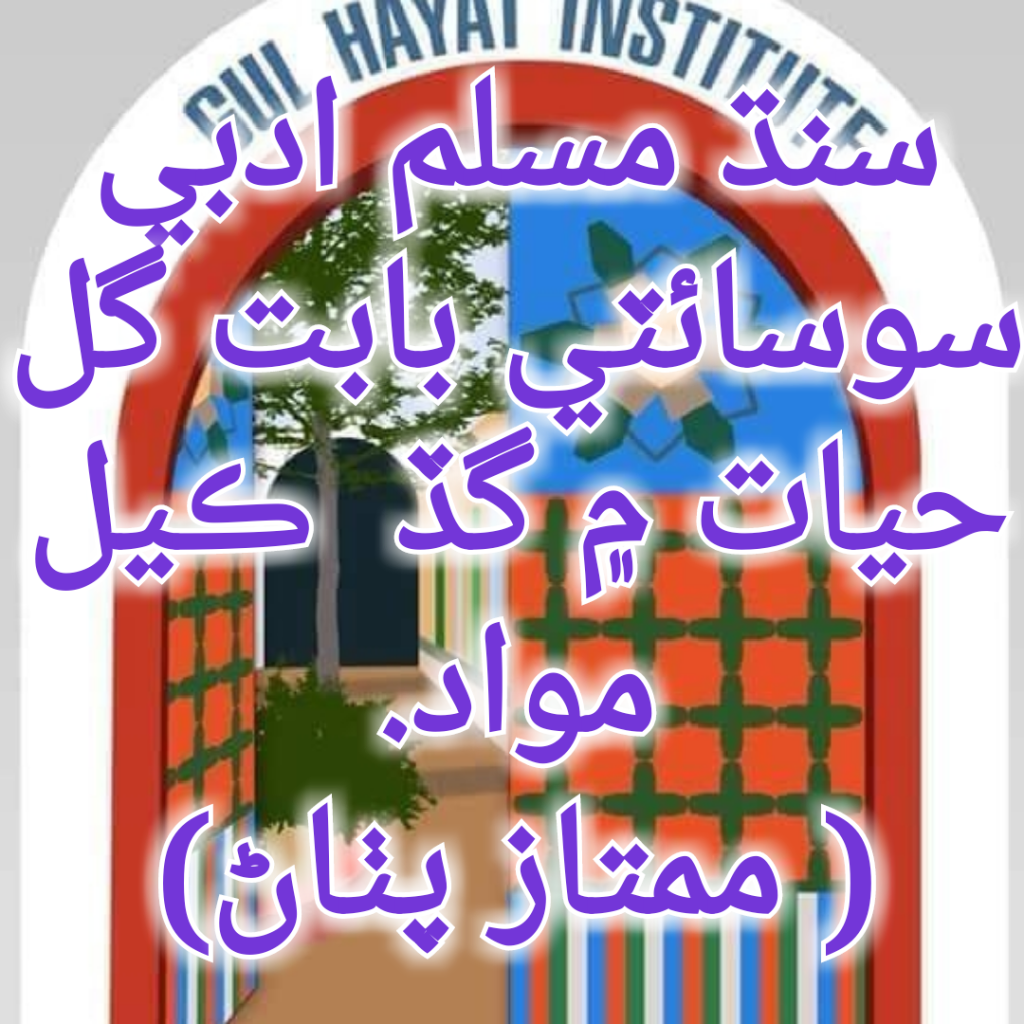
سنڌ مسلم ادبي سوسائٽي بابت گل حيات ۾ گڏ ڪيل مواد.
April 18, 2025

سنڌ آزاد پارٽيءَ بابت گل حيات ۾ گڏ ٿيل مواد.
April 18, 2025
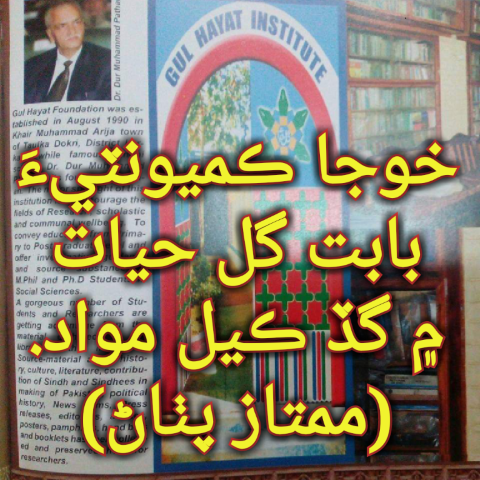
خوجا ڪميونٽي بابت گل حيات ۾ گڏ ڪيل مواد
April 18, 2025

سنڌ جي ڪتب خانن جي وچ ۾ باھمي ربط جي ضرورت.
April 18, 2025
